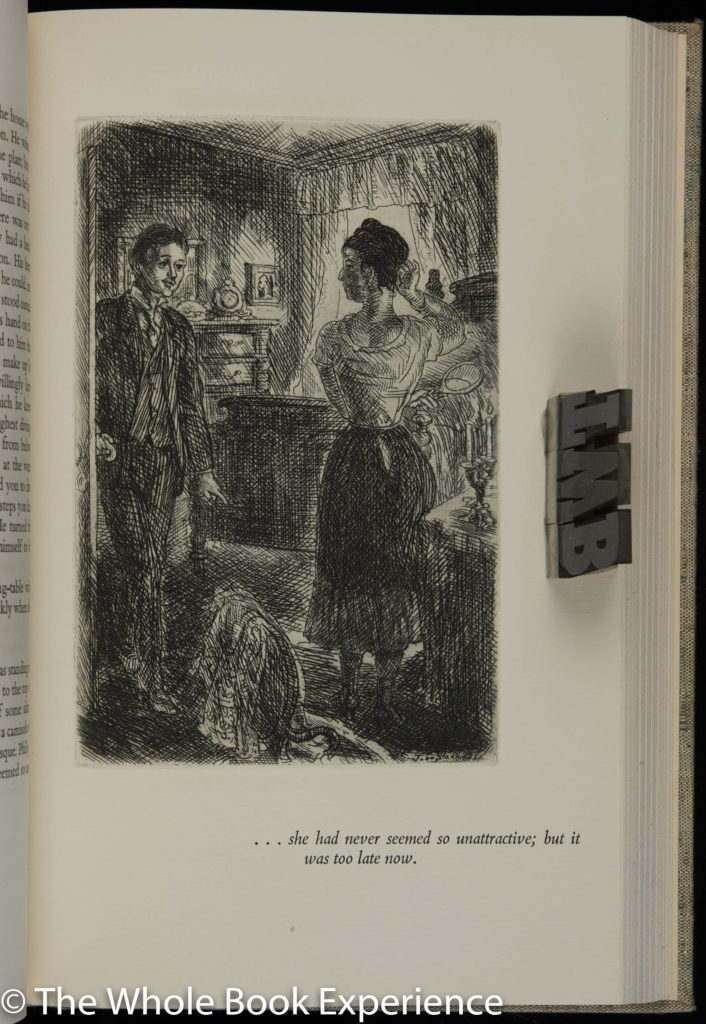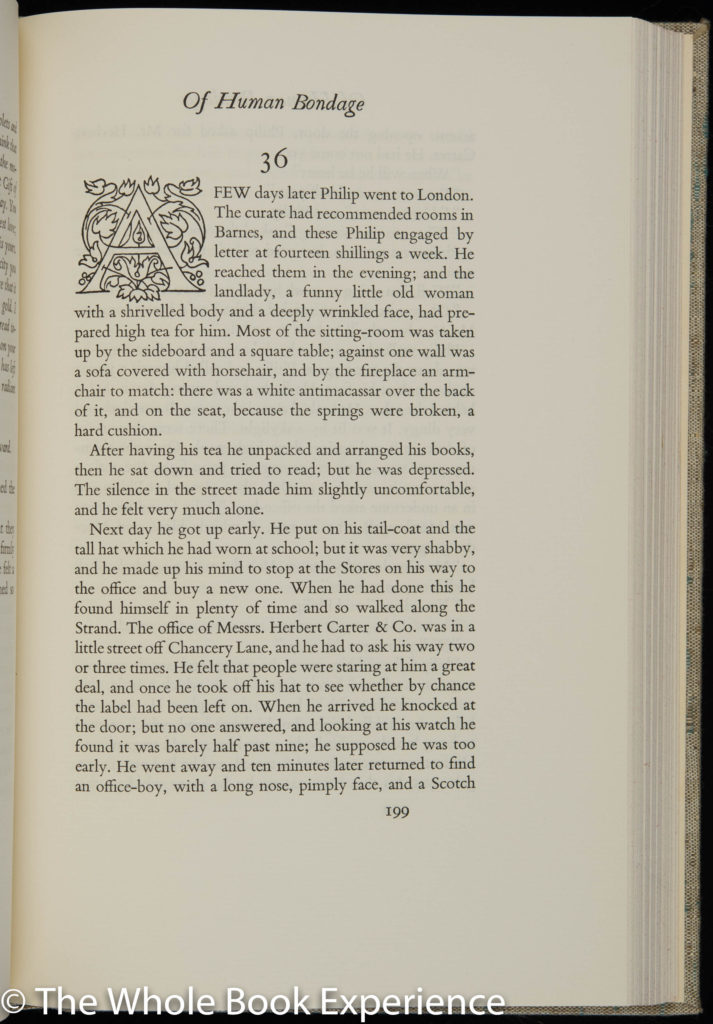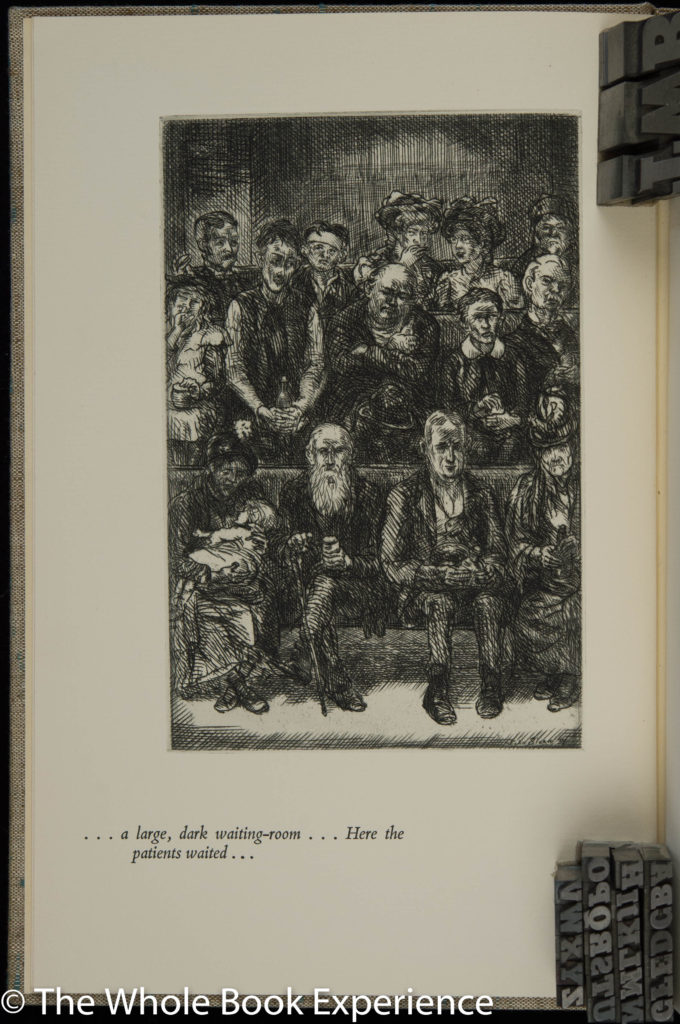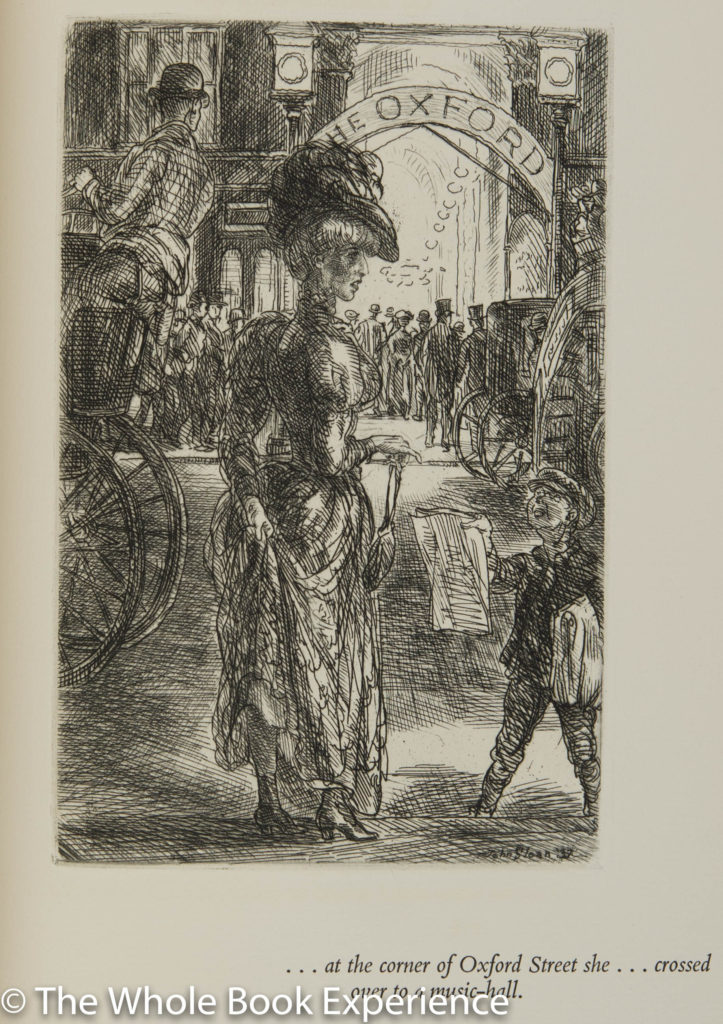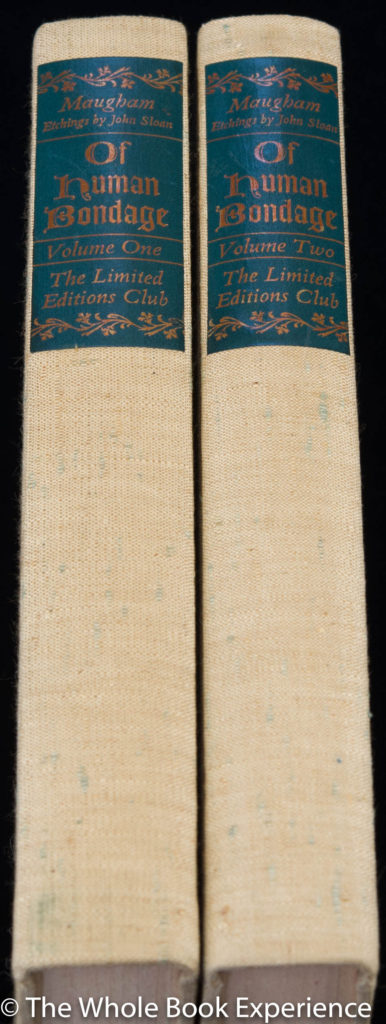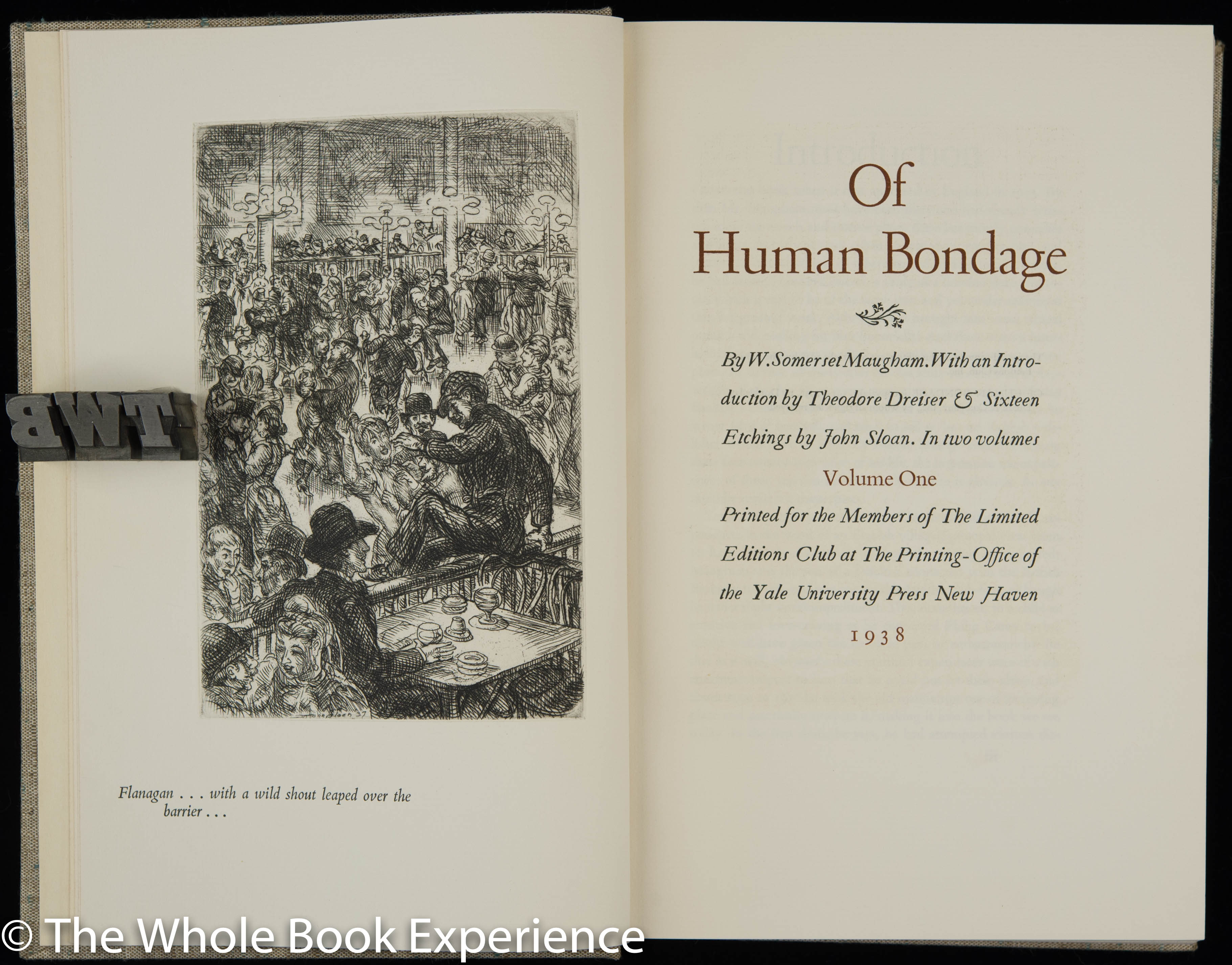
The title of W. Somerset Maugham’s novel has always seemed fraught to me. It seems even more so now. I wondered early on if it might be titillating but then I realized it was written at the end of the Victorian era, so little chance of that. It might have been an easier read if it was that kind of bondage. But there are many forms of bondage and this novel deals with the bondage of economics and gender and institutions in society. The novel portrays English society
but women and poor in many parts of the world would probably see themselves in the story. With the destruction of the middle class in my country, it seems like 95% of us are sliding towards the type of life and bondage described by Maugham. But we’re not in a book, so maybe there is even less hope for a happy ending than the slim chance you would give for this book to end well.
Maybe this wasn’t a great choice for a pandemic read.
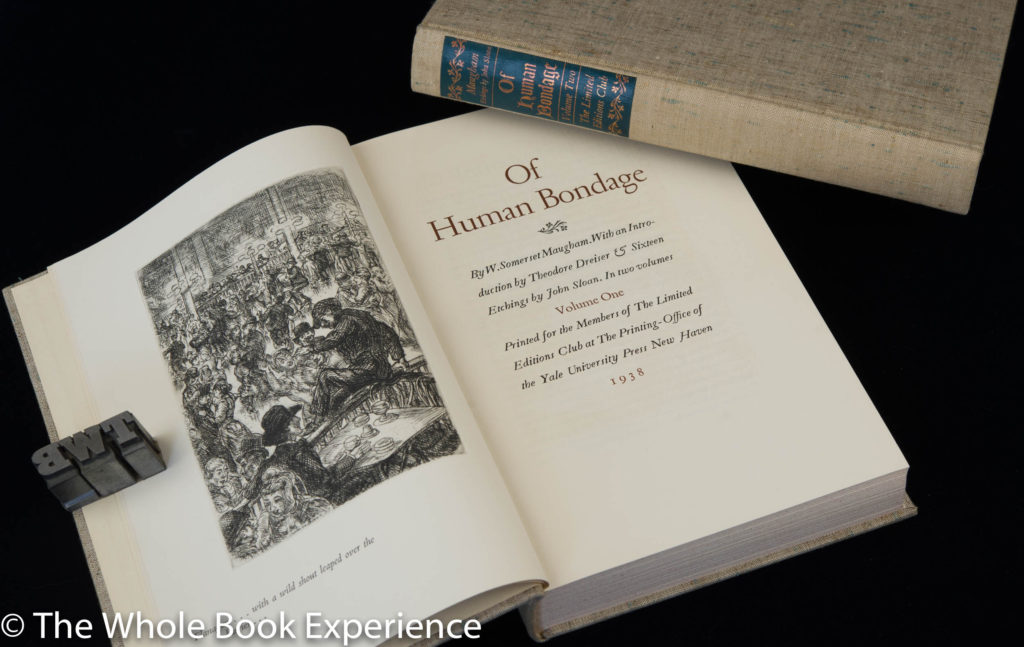
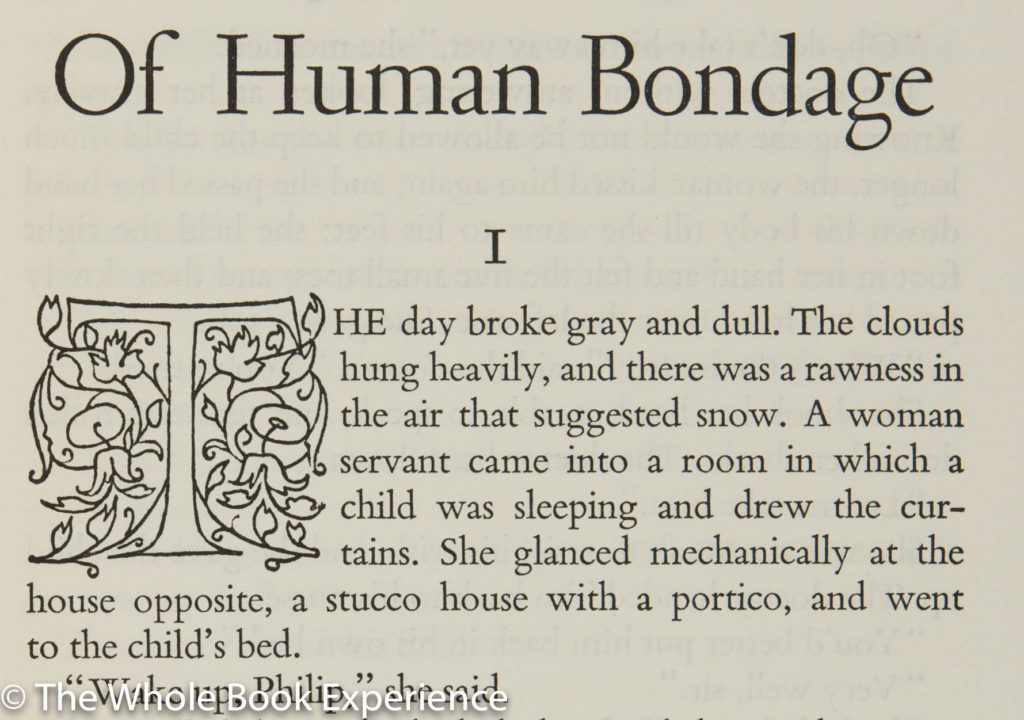
I disliked this novel often while I read it. By that I mean I was uncomfortable for a large percentage of my reading time. I was uncomfortable that so many people had to live with that kind uncertainty and scarcity of prospects and quiet desperation in their lives. While the protagonist Philip, whose life and prospects that the novel follows, made me uncomfortable and anxious
for his individual future, the other characters, both major and minor, that were women, made me even more uncomfortable. It was like reading Dickens but without the ability to overlay the more comfortable and comic versions of Fagan that appear in the musicals and Disneyfied movies with the much darker character of the written Fagan. Or reading Les Misérables without being able ignore the social issues and turn it into a simple Broadway love story. It seemed so real. And that’s the mark of a great writer. I not only was a spectator uncomfortable with what was being described but it was visceral in the sense that I was feeling that what Philip was going through mimicked how I might feel in the same situations. I was uncomfortable because I see that uncertainty and scarcity in my world and society now in a way that could swallow up my kids or nephews and nieces. Or even me. And because I see that the uncertainty and scarcity is still worse for women than for men 100 years on from the novels setting.
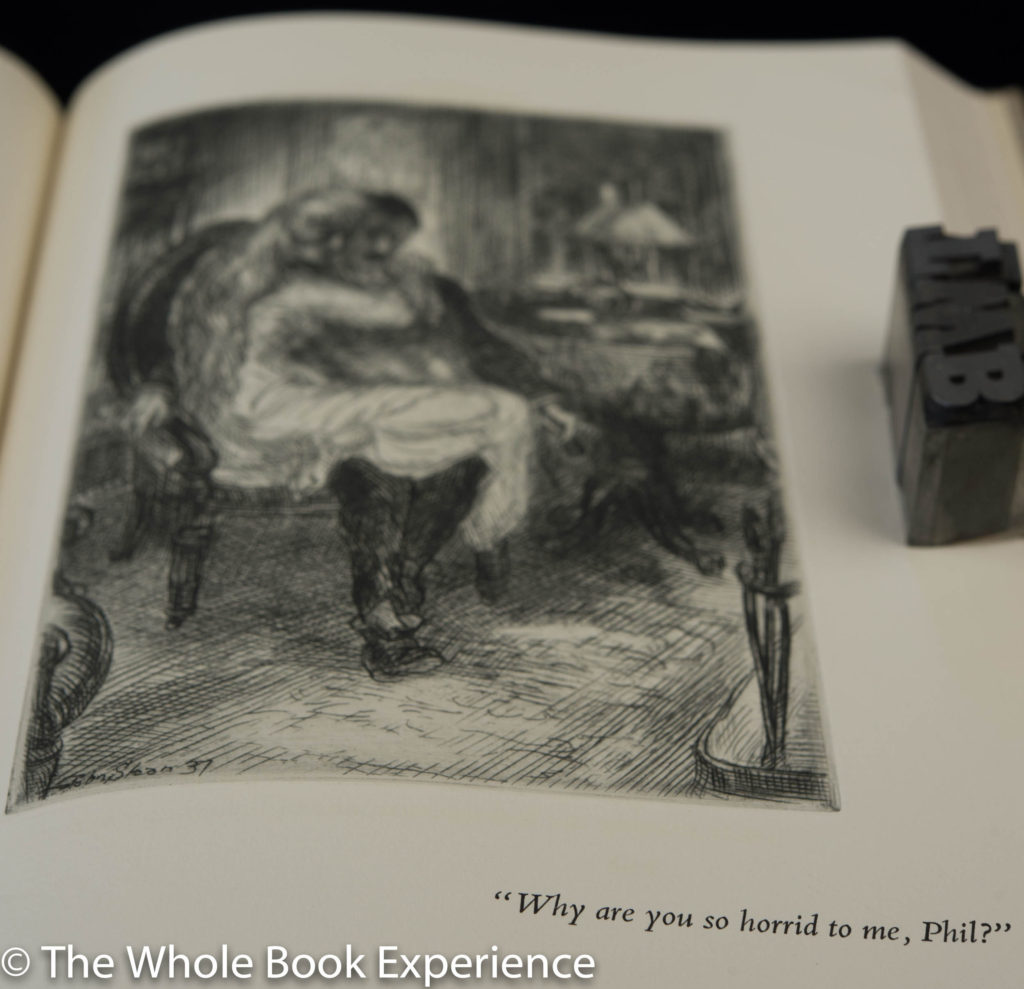
Is it normal for a man reading a book written by a man about men in a men’s world to be most bothered by the fate of the women who are undeveloped, secondary characters? Maybe not. But my activism for women’s reproductive rights makes me sensitive, especially as there are several episodes in this book where a single woman’s inability to control her fertility dooms her while the man can just disappear. Or when it dooms a family that was already struggling to feed itself to potential disaster, as comes through in this passage:
The people who dwelt here lived from hand to mouth. Babies were unwelcome, the man received them with surly anger, the mother with despair; it was one more mouth to feed, and there was little enough wherewith to fed those already there. Philip often discerned the wish that the child might be born dead or might die quickly.
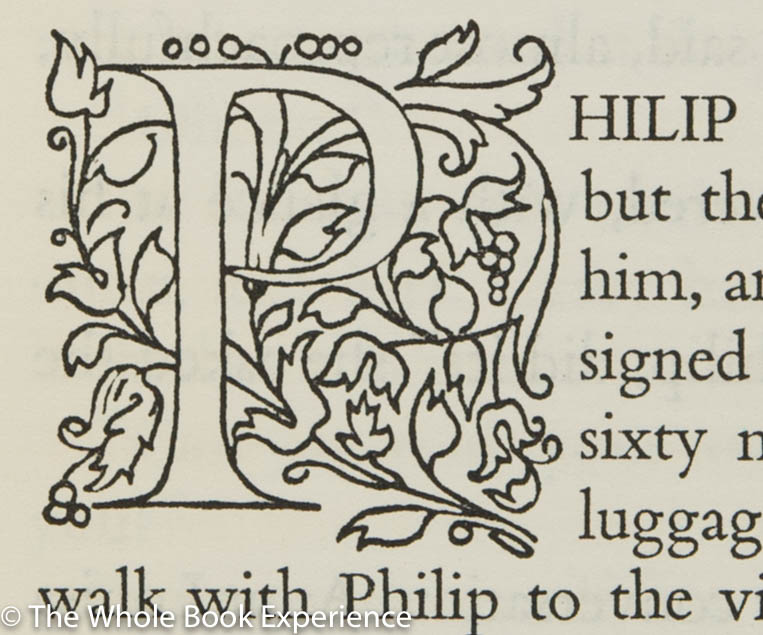
The books resident philosopher, Cronshaw, hit on another resonance with today’s world when he says “My ancestors have lived in a civilised state so long that the fear of the police has eaten into my bones.”
The whole of what Philip is doing throughout the novel gets summed up philosophically at one point when he thinks:
The thing then was to discover what one was and one’s system of philosophy would devise itself. It seemed to Philip that there were three things to find out: man’s relation to the world he lives in, man’s relation with the men among whom he lives, and finally man’s relation to himself.
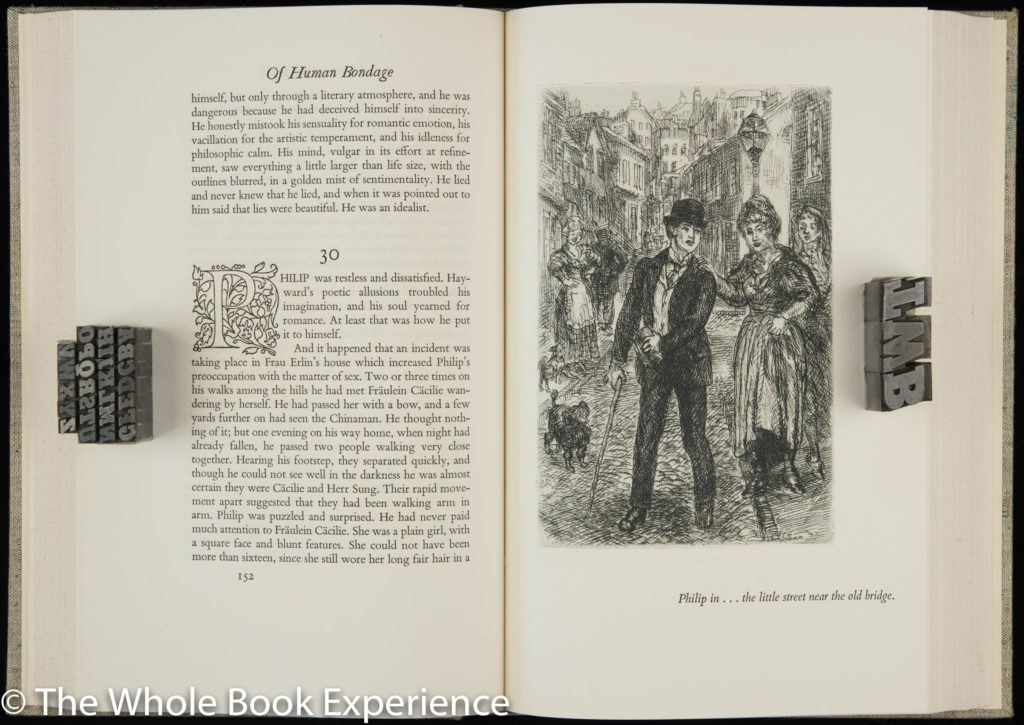
Maybe the best thing about the novel is centering a protagonist with a disability, giving us a view into how it feels to live with disability on top of all the challenges that life and society throw our way. Philip’s clubfoot disability is mild compared to more debilitating and less treatable disabilities but probably more stigmatized than the stutter that Maugham himself experienced and used as a model for Philip’s disability.
Moving on to the experience of reading the novel in this particular fine press edition, I’ll start with maybe my favorite quote in the novel,
I see you’re fond of books. You can always tell by the way people handle them.
I definitely resonated with Philip as a reader and lover of books. Early in the novel, as Maugham is developing his character, he writes:
Insensibly he formed the most delightful habit in the world, the habit of reading: he did not know that thus he was providing himself with a refuge from all the distress of life; he did not know either that he was creating for himself an unreal world which would make the real world of every day a source of bitter disappointment.
One of the most delightful things about reading this Limited Editions Club edition was the cloth used for the binding. It is so soft and sensual to the touch that it was a delight to pick up and hold each time I read. That’s especially astonishing in that the book is 82-years old. I did notice that the spine did not have that same tactile feel, as it has been exposed most
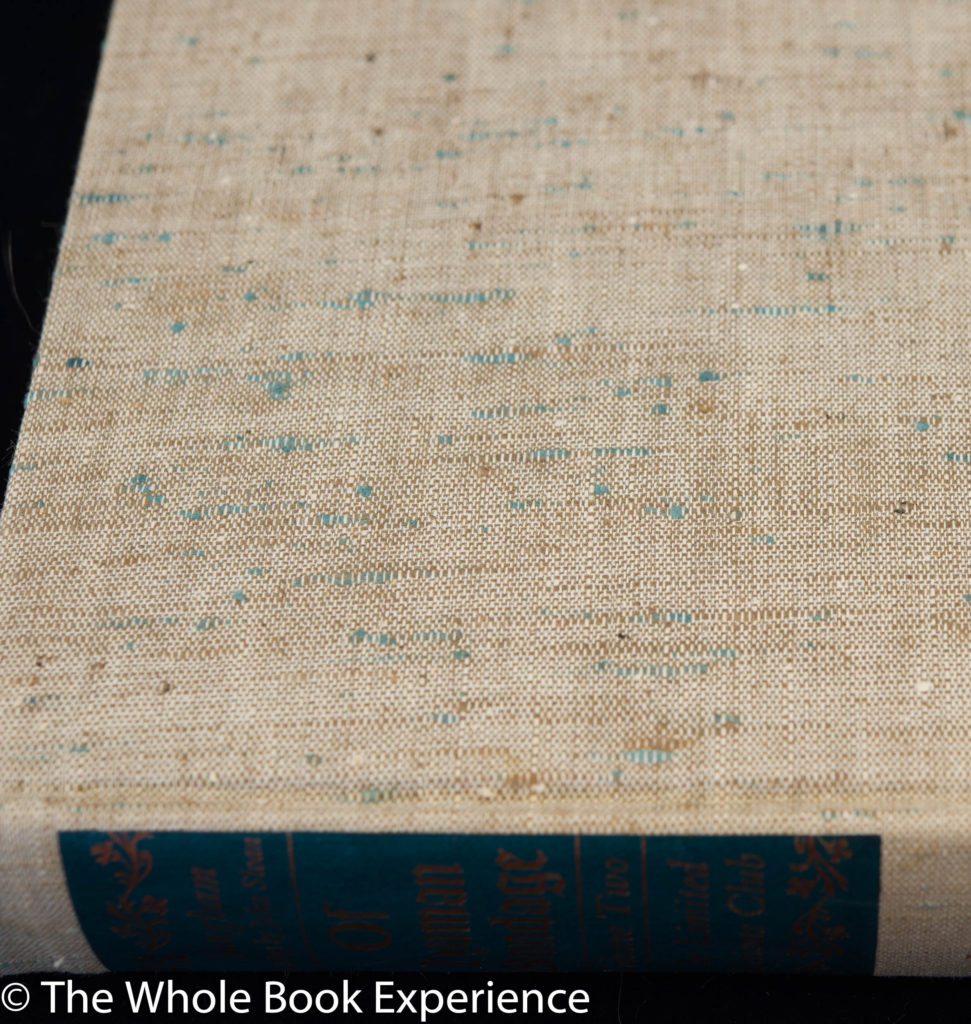
of those years (my copy does not have the glassine wrapper to protect it somewhat) and worn much smoother. So I suspect a combination of the slipcase doing its job and that the book has probably not been handled much or read before may be a prime factor in how amazing the book cloth feels. In his Monthly Letter dated February 1938, Number 105, Macy states that the cloth is an English Linen that was especially imported for the edition and that he had never seen before. He calls it coarse linen but that is not a word I would use to describe the way it feels.
The book was designed by Carl Rollins at The Printing-Office of the Yale University Press. I really liked the fact that the book was separated into two volumes to make it more comfortable to read and handle with the care of a book lover. Again in his letter, Macy states that the 6” x 9 1/8” size chosen for the book “always gives tactile pleasure when held in the hands.” The book is indeed easy and comfortable to read and the contact with that cover linen extraordinary.
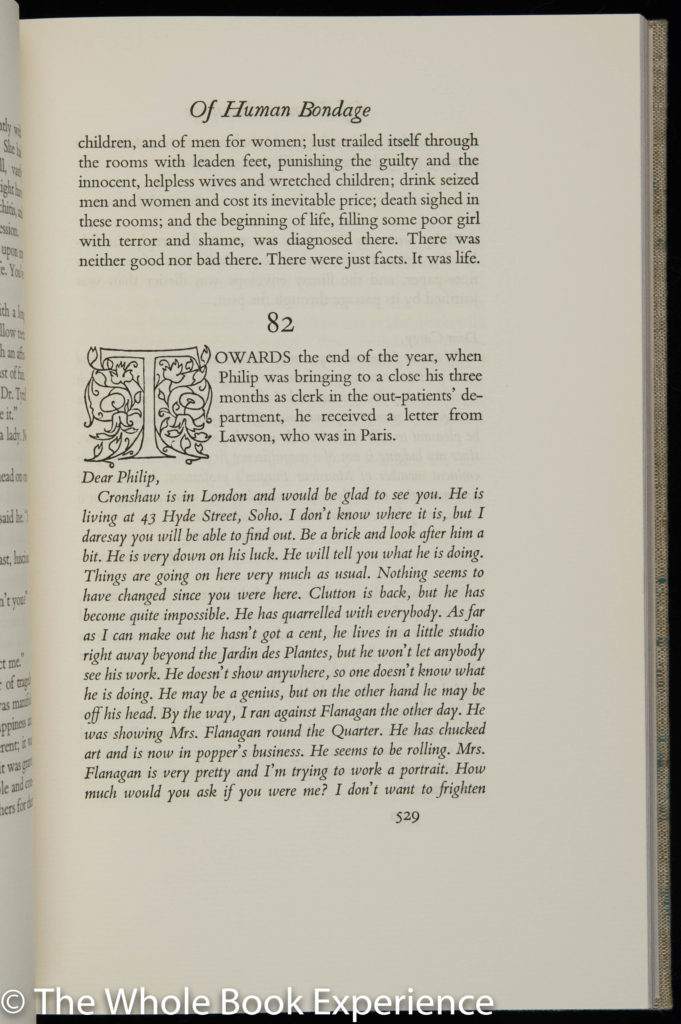
I get the impression Macy didn’t love Bembo and thinks that Rollins chose it simply because Yale University Press was one of the few American presses to have it at the time. I found it very readable and an elegant companion to the delightful illuminated Old Caslon capitals at the beginning of each chapter. And even more elegant with the lined texture of the custom-made rag paper from Special Worthy Paper Company.
Given the length of this novel, I doubt we will ever see a better edition than the LEC. There are too few presses doing lengthy texts like this. You might want to search a copy out.
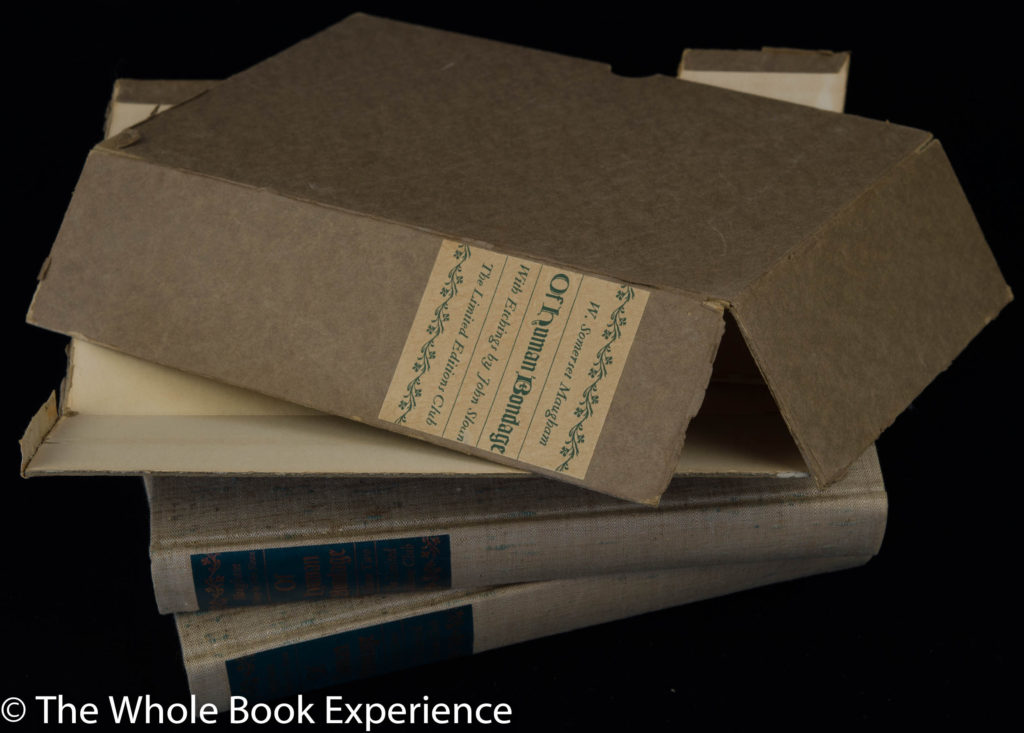
[Excursus on slip-cases] I’ve always been baffled by the negative view of slipcases held by many bookish folk. I even talked to a binder who viewed them as destructive due to the friction of inserting and removing the book, even in the correctly sized ones that they made (They recommended clamshell boxes, which I agree are better from the perspective they were coming from). I love them, especially
if they are labeled so I can store my books spine inward to prevent fading. But the main reason I love them is illustrated here perfectly. The damage they absorb protects the book. My slipcase is in pieces after 82 years of doing its job. But the books are practically perfect except for some fading and loss of softness to the spine. Well done. I hope to learn to make slipcases, or have one made, so I can give the books another century of protection. Hopefully I’ll even be able to salvage the slipcase label…
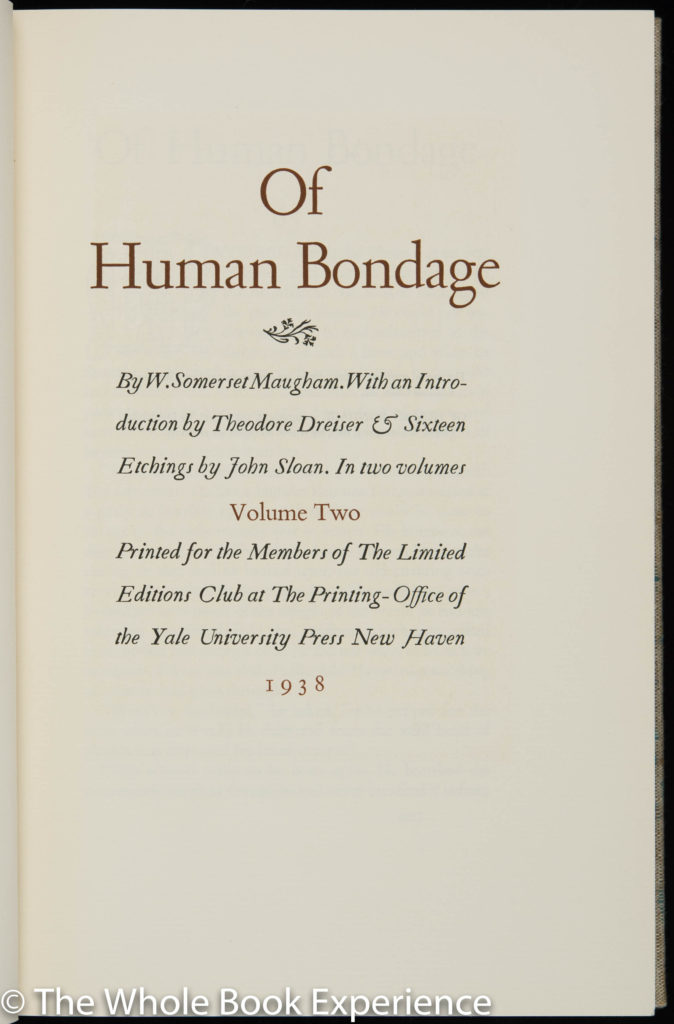
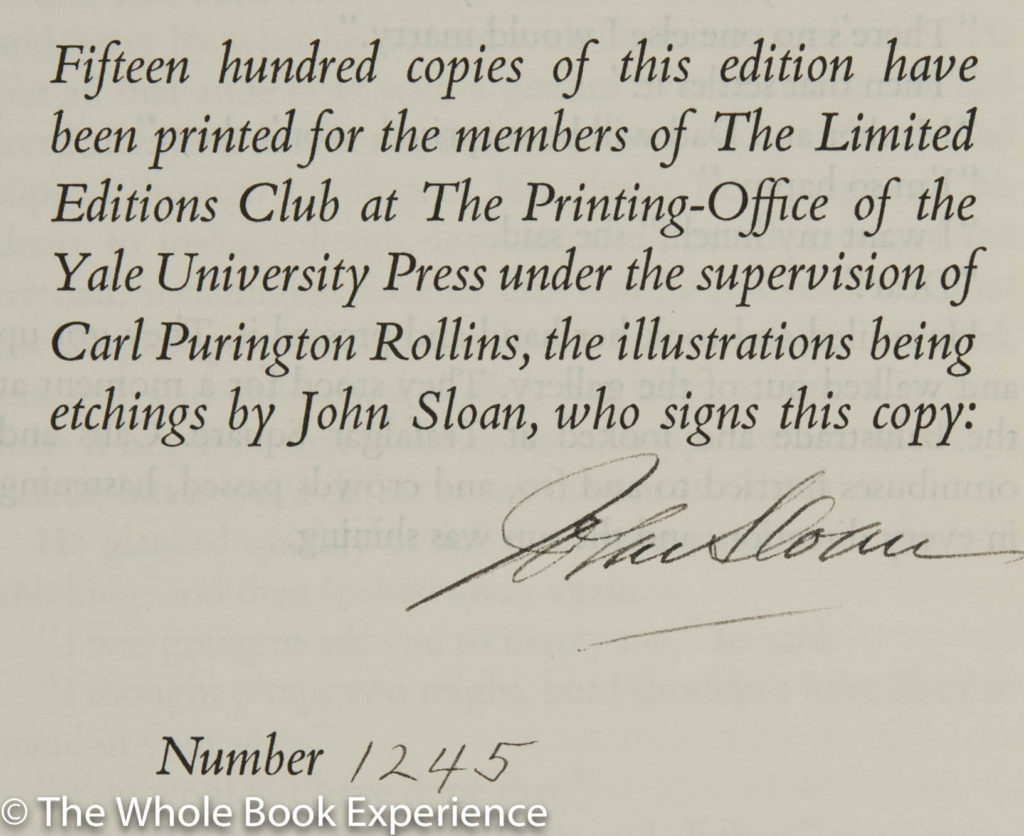
AVAILABILITY: 1500 copies printed at the Yale University Press in 1938. As of this writing, I saw 28 copies on-line from about $600 to $100.

